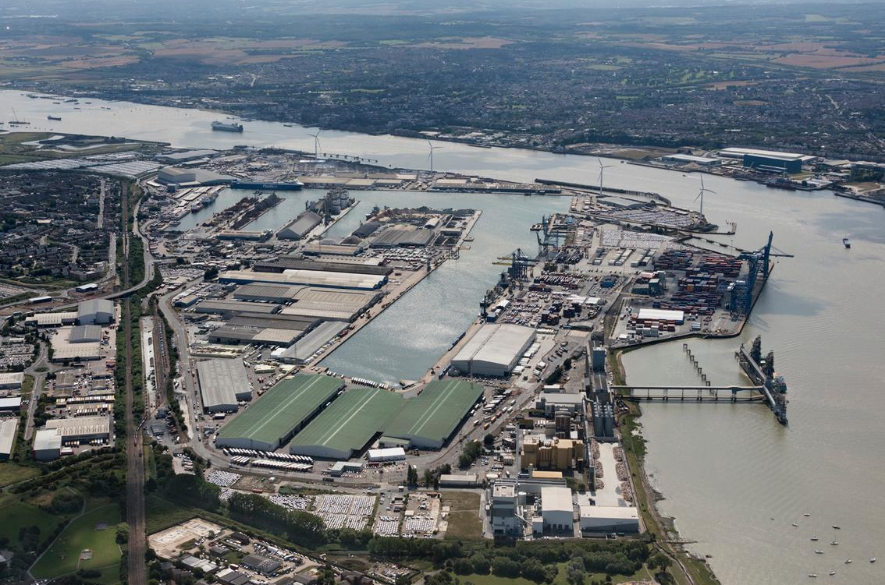Wilson James, the leading provider of specialist construction logistics services, has announced that it has expanded its warehousing and consolidation capacity into the Port of Tilbury, London’s major port. The new facility augments the company’s existing London Construction Consolidation Centre (LCCC) and helps it to meet the evolving needs of its growing customer base, which requires construction material and equipment to be delivered to site in ever-shorter timeframes.
In 2005, Wilson James created the LCCC in East London, which was the first facility of its kind and redefined best practice in construction logistics. It continues to be ideally located for projects across London and also provides space for contractors to build mock-ups, create quality samples and carry out off-site fabrication. As part of a strategic objective to enhance its distribution and consolidation capacity, and facilitate just in time delivery across the UK, the company assessed all available options and decided that the Port of Tilbury offered the most suitable opportunities for expansion.
Located on the north bank of the River Thames at Tilbury, Essex, the Port of Tilbury is the number one port for construction materials, handling a range of materials from aggregates, specialised dry bulk materials to timber; plywood and forest products as well as bricks, paving and stone. The port is in a prime location for London and the South East, offering easy access to the M25 and the rest of the UK’s national motorway network. The busy port has an annual throughput of 16million tonnes per annum, which is estimated to value around £8.7bn, and cargoes are spread across an estate in excess of 1,000 acres, with five million square feet of undercover warehousing.
‘Put simply, the Port of Tilbury ticked all the boxes,’ explained Keith Winterflood, operations director at Wilson James. ‘As well as being strategically located and boasting state-of-the-art facilities, it makes importation of overseas goods easier for us. Just as importantly, in addition to the excellent transportation links by road and rail, we can improve sustainability across our operation through the use of barges on the River Thames and other waterways.’
This can significantly lower operational carbon emissions and Winterflood continued, ‘50 lorry loads of equipment can fit on one barge and it also gives us the ability to transport large and heavy deliveries, which are normally challenging to accommodate on London roads. When it’s not possible to use the waterways, the Port of Tilbury’s proximity to the M25 allows goods to be dropped off without coming into London, which we can then transport using our fleet of electric and fuel efficient vehicles.’
This announcement closely follows the UK government’s promise to ‘build, build, build’ the UK back to economic health. Achieving this requires a flexible, reliable and robust supply chain and Wilson James expects to have a major role to play. Its expansion into the Port of Tilbury, alongside its LCCC, provides significant operational advantages as it continues to add value and refine existing supply chains during what is predicted to be a busy period for the construction sector.
The Port of Tilbury’s commercial manager, Alison Hall, commented, ‘We are very pleased that Wilson James has chosen the Port of Tilbury as the location for its latest consolidation centre. Our unique combination of transportation links will help Wilson James remove complexity in the supply chain and reduce journey miles, thereby creating a sustainable way to ensure that material and equipment gets to where it needs to be, on time.
‘This is an exciting time for the port as we continue to invest in our infrastructure and open our new port extension Tilbury2 which will home one of the largest construction material terminals in the UK.
‘We look forward to working with Wilson James to provide joint solutions for construction projects and support to its existing supply chains that are keen to gain from the sustainable benefit the port can offer with our unrivalled train, road and sea connections. On average we see a CO2 saving of 95% compared with road when barging materials on water. Using water for freight transport also significantly removes congestion from London’s roads.’
Download the full press release here.



